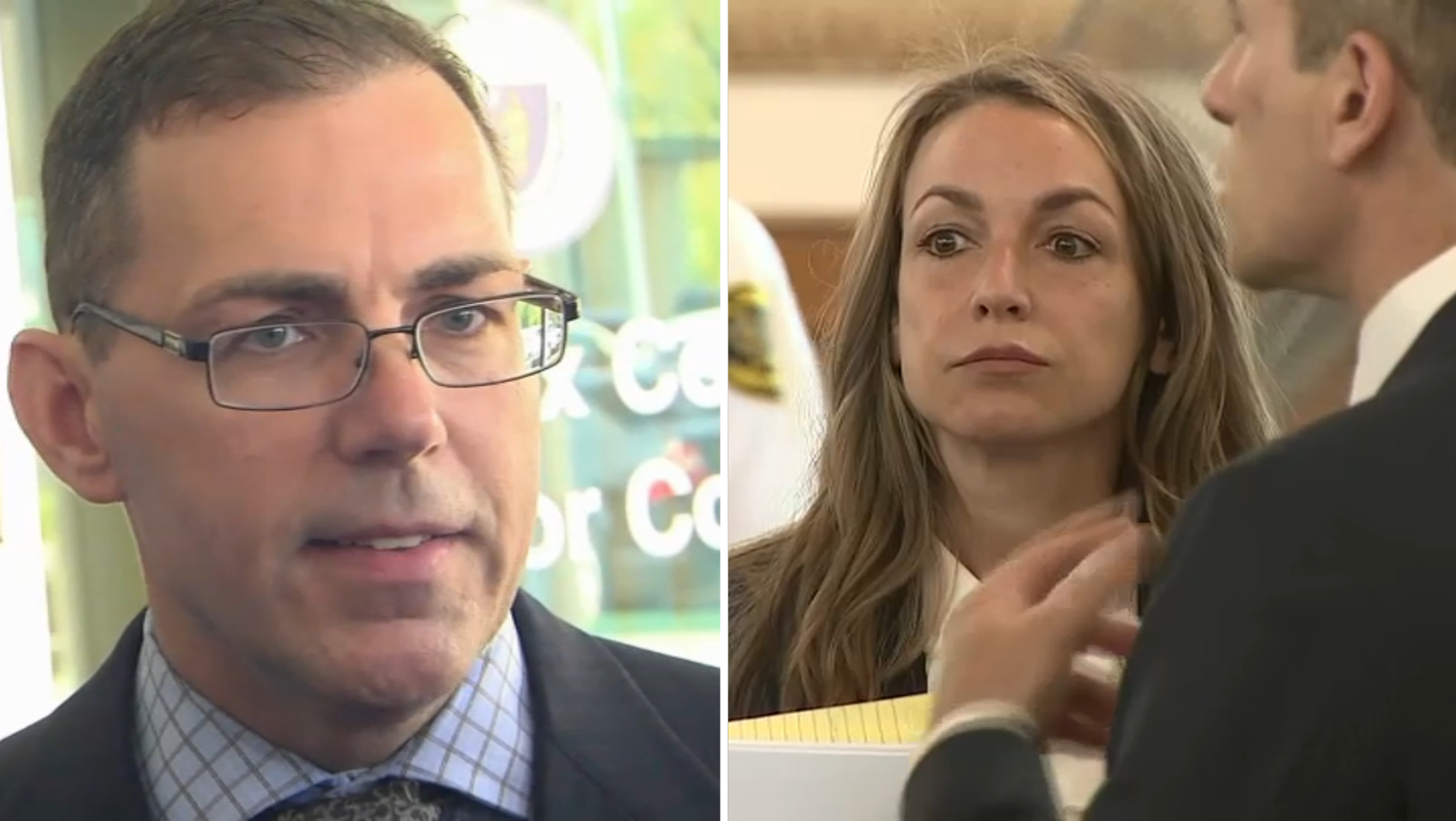Prosecutors in the Karen Read murder case said that they've filed their response to her team's appeal to Massachusetts' highest court to have two counts in her murder case dropped.
Their arguments to the Supreme Judicial Court were due Wednesday, and a spokesman for the Norfolk County District Attorney's Office told NBC10 Boston late Wednesday afternoon that the team had submitted the filing, but that it likely wouldn't be available until Thursday.
WATCH ANYTIME FOR FREE
Stream NBC10 Boston news for free, 24/7, wherever you are. |
A court official had earlier said they could only share legal briefs filed before the end of the working day; prosecutors had until midnight to meet the deadline.
Read is accused of killing her boyfriend, Boston Police Officer John O'Keefe, with her SUV during a snowstorm in Canton in January 2022, but after a mistrial was declared in the initial trial, her legal team filed to have the charges of second-degree murder and leaving the scene of a crash resulting in death dismissed on grounds of double jeopardy. They claim that after the mistrial, several jurors revealed to them that the jury was actually in agreement that Read was not guilty on those two charges and were only in disagreement on the charge of manslaughter while driving under the influence.
Get updates on what's happening in Boston to your inbox. Sign up for our News Headlines newsletter.
While the district attorney's office opposed that position in Norfolk Superior Court, convincing Judge Beverly Cannone, but Read's team got a major ally in the case Wednesday, when the American Civil Liberties Union of Massachusetts filed a brief arguing that the Supreme Judicial Court should toss Cannone's decision and at least have her hold a hearing involving the evidence that the jury was in agreement.
The ACLU's lawyers said that the Constitution's prohibition of double jeopardy — you can't be tried twice for the same crime — and applies in this case. They also argued that courts in Massachusetts regularly ask juries questions after a mistrial is declared, as well as hold hearings to address irregularities after a verdict is declared.
"Almost 400 years ago, the Massachusetts colony enacted the first formal prohibitions against double jeopardy on American soil. In accordance with this tradition, the Court should require an evidentiary hearing to ensure that Appellant’s double jeopardy rights are not violated by a second trial on counts for which the jury already agreed to acquit her and for which the trial court did not have manifest necessity to declare a mistrial," the ACLU's brief said.
In her August ruling against dismissal, Cannone said a verdict is reached when it's declared in open court and that didn't happen in the Read case. Cannone declined to interview the jurors, saying she didn’t want to interfere with jury deliberations.
NBC10 Boston legal analyst Michael Coyne believes that Read's argument won't win out after the Supreme Judicial Court hears arguments in the case on Nov. 6.
"What we have are some jurors coming forward, saying, 'Oh, we reached a decision on a few of the counts, but not everything.' And that isn't the way we want our jury verdicts to be returned," Coyne said.
Read's lawyers' will have several days to respond to the prosecution's filing. Read is set for a retrial in January.



